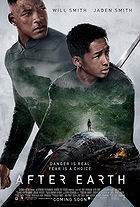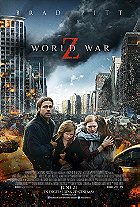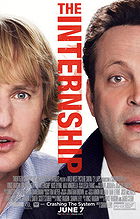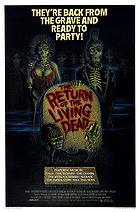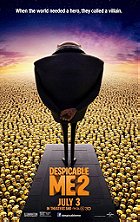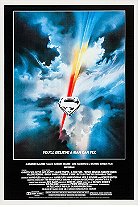"Your name is Kal-El. You are the only survivor of the planet Krypton. Even though you've been raised as a human, you are not one of them. You have great powers, only some of which you have as yet discovered." In many ways, 1978's
Superman ushered in the superhero movie subgenre, demonstrating that filmmaking technology had finally advanced far enough to convincingly realise comic book heroes on the big screen. Superhero films are all the rage in the 21st Century, with Marvel and DC flooding cinemas and streaming services with seemingly endless content, but
Superman was the first of its kind. Although cheap superhero serials and television shows preceded it, this big-screen adaptation of the titular DC Comics character generated a new wave of multiplex-rocking live-action superhero flicks, paving the way for the likes of
Batman,
X-Men and
Spider-Man. Directed by Richard Donner (best known at the time for
The Omen),
Superman remains a historically iconic movie and an eminently enjoyable, well-made action-adventure. It's an epic motion picture full of grand spectacle that benefits from robust storytelling, a superb cast, and an unforgettable score. But
Superman ultimately soars thanks to Donner's dedication to the spirit and style of the comic books, creating an inspiring portrait of a man fighting for truth, justice and the American way.

With the distant planet of Krypton on the brink of destruction, Jor-El (Marlon Brando) and his wife Lara (Susannah York) place their infant son in a spaceship bound for Earth, where his dense molecular structure will give him superhuman abilities. Kansas farmers Jonathan (Glenn Ford) and Martha Kent (Phyllis Thaxter) discover the ship and adopt the boy, naming him Clark (Jeff East) and raising him as their own. Following his father's abrupt death, Clark learns of his heritage, powers and responsibilities, finding the Fortress of Solitude in the Arctic where a hologram of Jor-El trains him for over a decade. Emerging in a blue-and-red suit that bears the crest of the House of El, Clark Kent (now played by Christopher Reeve) moves to Metropolis, where he decides to use his incredible talents to become the world's protector, Superman. To blend in, Clark disguises himself as a mild-mannered newspaper reporter working for the Daily Planet. Kent develops romantic feelings for fellow reporter Lois Lane (Margot Kidder), who's in love with Superman but is unaware of his true identity. Meanwhile, diabolical criminal mastermind Lex Luthor (Gene Hackman) develops a scheme that will kill millions for profit and pleasure, bringing him to Superman's attention.
Mario Puzo (who wrote The Godfather novel) penned the first screenplay draft for a two-part Superman film, but producers Alexander and Ilya Salkind felt it was too long and ambitious, prompting them to recruit Robert Benton and David Newman (writers of Bonnie and Clyde) to conduct rewrites, with David's wife Leslie also contributing. After Donner joined the project, he found the script too campy and recruited Tom Mankiewicz (co-writer of three James Bond adventures) to perform further rewrites. The resulting screenplay is a masterclass that shines in terms of structure and dialogue. Superman runs an intimidating 140 minutes, allocating ample time to explore the Last Son of Krypton's origins before he becomes humanity's saviour. Nothing feels inessential, even though the movie feels long, as Donner takes his time to develop the characters and work through the narrative. Superman also contains a touch of poignant pathos, as the death of Jonathan Kent hits extremely hard. However, the film is not deadly serious - although Donner handles the occasionally silly material with sincerity, there's a healthy sense of humour and wit that does not feel out of place. Unfortunately, however, the movie does crumble towards its climax - no matter how you portray it, Superman turning back time is too cheesy and naff.

Superman was not the first time the titular superhero stepped out of the comic book pages and into other media. There was a radio show in the 1940s, followed by a series of cartoon shorts by Max Fleischer, a film serial starring Kirk Alyn, and a television show featuring George Reeves. However, technical limitations of the era hindered such productions, preventing a believable representation of a live-action Superman. But in 1978, Donner and his team could finally accomplish a Superman capable of superhuman abilities. A teaser poster was even released before shooting commenced, announcing, "You'll believe a man can fly." And, indeed, you do believe it, with state-of-the-art 1970s special effects giving credible life to the inimitable Man of Steel. Without the benefit of CGI, the special effects team accomplished the flying scenes through a combination of wire flying rigs, blue screen, and front projection. When Superman emerges to save the day, the results are glorious, with Donner showing a keen eye for staging coherent action set pieces. Not all flying scenes are entirely believable, especially under contemporary scrutiny, but the sequences are good enough.
Filming for Superman and Superman II took place simultaneously over nineteen months, with a host of talent behind the camera to give audiovisual life to Donner's vision. Geoffrey Unsworth's skilful cinematography provides the picture with an immense visual gravitas, with gorgeous shot composition (see some of the grand shots of Smallville's landscapes) and use of lighting, with the opening segment on Krypton looking particularly striking. The production design is equally impressive, including the aforementioned Krypton scenes and Superman's Fortress of Solitude. However, John Williams's triumphant score catapults the film to another level. The memorable theme grabs your attention during the opening credits, and the set pieces are enormously stirring thanks to Williams's flavoursome musical accompaniment. It's one of the all-time great film themes, the type we do not hear anymore: it perfectly captures the sense of heroism and high-flying adventure that Superman is all about. Everyone involved in the production set out to make the best possible film, and Warner Bros. spared no expense - indeed, Superman was their most expensive motion picture at the time, costing a considerable $55 million.

The casting of Clark Kent/Superman presented the production's biggest challenge. The producers considered many prominent actors, including Robert Redford, Burt Reynolds, James Brolin, Paul Newman, Nick Nolte, James Caan, and Sylvester Stallone, while Arnold Schwarzenegger lobbied hard for the role, but his accent made him an impossible choice. Donner wanted an unknown for the role to avoid the perception of "a movie star in tights," and over 200 unknown actors auditioned, with the search becoming so desperate that a dentist was even screen tested. Although Donner and the producers initially dismissed Christopher Reeve for being too skinny, his screen test convinced them that he was the right choice, and it's impossible to imagine anyone else playing Supes in this big-screen interpretation. Unwilling to wear a muscle suit to compensate for his small stature, Reeve worked rigorously with David Prowse (Darth Vader himself) to build the desired muscular physique for the character, and the efforts paid off. However, while Reeve has the right look to play the role, the actor's charisma and personality make him ideal. Reeve creates distinct, fully-rounded personas for Clark (the bumbling, insecure geek) and Superman (the confident superhero), making it easy to distinguish one from the other.
Alongside Reeve, Margot Kidder is merely decent as Daily Planet reporter Lois Lane. She has nice chemistry with Reeve but lacks charm, and it's hard to understand why Clark falls for her so quickly. Faring much better is the always reliable Gene Hackman, who's an ideal Luthor, while Ned Beatty is brilliant as Lex's dim-witted accomplice Otis. Meanwhile, Marlon Brando, who plays Jor-El, adds more gravitas to the production. Brando was paid a then-unheard-of $4 million to appear in only a handful of scenes, and he brings an appreciable sense of regality to his character. Luckily, the producers did not listen to Brando's ideas about portraying Jor-El, as the actor wanted to merely lend his voice while the character appears as a green suitcase or a floating bagel (yes, seriously). Also in the cast is Jeff East, who is a believable and endearing teenage Clark (Reeve actually dubbed his voice), while the great Glenn Ford provides warmth and heart as Pa Kent.
Superman set a tonal and narrative template for superhero movies, showing that comic book adaptations can deliver terrific spectacle while handling the fantastical material with a straight face and maintaining a sense of humanity. Consequently, the picture's dramatic elements are as involving and compelling as the action scenes, and we grow to care about the people who are in peril. Looking back at
Superman in the 21st Century, it admittedly shows its age in the special effects (especially the model work), while the pacing is not always spot-on. Then again, it's hard to begrudge the film for this, as this was the first time filmmakers attempted a big-budget superhero film.
Superman is terrific despite its flaws - it's exciting as a comic book movie, but it also has a sense of sophistication and cinematic maturity that will appeal to adults. The film's immense global box office returns (over $300 million) led to three sequels, and Superman continues to appear in film and television, keeping him at the forefront of pop culture consciousness.
7.9/10



 Login
Login
 Home
Home 183 Lists
183 Lists 1671 Reviews
1671 Reviews Collections
Collections
 0 comments,
0 comments, 